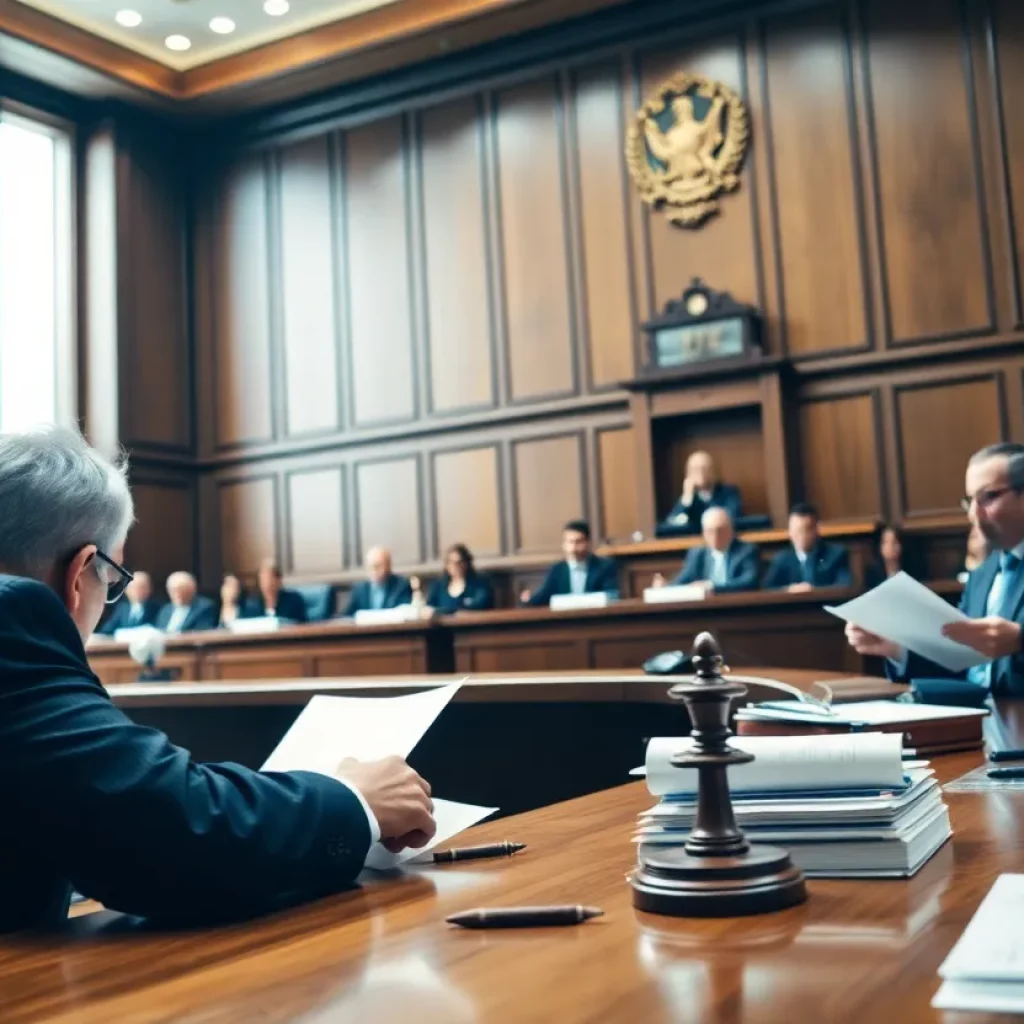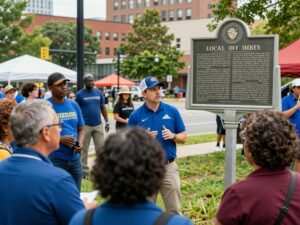News Summary
The Supreme Court is set to review Holsey Ellingburg’s case regarding federal restitution under the Mandatory Victims Restitution Act. Ellingburg, sentenced in the late 1990s, argues that the retroactive application of this law violates the ex post facto clause of the Constitution. As the case unfolds, it will examine the broader implications for defendants’ rights and restitution laws in the U.S. legal system.
Supreme Court Takes on Ellingburg Case: Federal Restitution Under Scrutiny
In a significant legal showdown, the Supreme Court has agreed to review the case of Holsey Ellingburg, a Georgia man serving a 27-year sentence for bank robbery. The crux of the matter involves Ellingburg’s ongoing obligations under the Mandatory Victims Restitution Act (MVRA) and whether these requirements essentially constitute a retroactive punishment that violates the Constitution’s ex post facto clause.
The Controversial Restitution Requirement
Ellingburg was sentenced in the late 1990s, with a restitution obligation that continues to complicate his reintegration into society. Under the MVRA, enacted in 1996—only a year after his sentencing—convicted individuals can be held liable for restitution payments for up to 20 years after a judge’s decision or release from prison. This law has raised questions regarding its retroactive application, which Ellingburg argues imposes unconstitutional burdens upon him.
His legal team argues that, since the MVRA did not exist at the time of his sentencing, holding him accountable for restitution under the new law essentially increases his punishment, thus infringing upon his rights as outlined by the ex post facto clause. Despite making 36 payments totaling approximately $2,054, Ellingburg maintains that the government’s persistent collection efforts feel punitive rather than remedial.
The Government’s Stance
Initially, the federal government opted not to defend the reasoning that led the U.S. Court of Appeals for the 8th Circuit to rule largely in its favor regarding Ellingburg’s obligations. Following a brief filed in February where the government suggested most appeals courts would align with the Eighth Circuit’s decision, things took a turn. On May 12, the U.S. Solicitor General revealed that they would not defend the appellate court’s rationale, creating a path for the Supreme Court to appoint former Clerk John Bash to argue on behalf of the court’s decision.
Bash, a partner at Quinn Emanuel in Austin, has previously served as the U.S. Attorney for the Western District of Texas, giving him a wealth of experience for this pivotal case. His appointment is part of a rare practice where the Supreme Court enlists outside attorneys to argue as “friends of the court.” This term has seen the appointment of five such allies.
Broader Implications
As Ellingburg’s case winds through the Supreme Court’s chambers, another case, that of David Villarreal, is also drawing attention. Villarreal is fighting for his sixth amendment rights, claiming that restrictions during his murder trial limited his ability to communicate effectively with his attorneys. The interconnectedness of these cases underscores a critical examination of defendants’ rights in the justice system.
Should the Supreme Court rule in favor of Ellingburg, it could set a precedent that reshapes how restitution laws apply to former inmates. This ruling could signal a more substantial distinction between civil remedies and punitive measures under federal law.
Looking Ahead
The high court’s decision to entertain this case signifies a pivotal moment in legal debates surrounding restitution and the broader implications for defendants post-conviction. With past cases, such as that of William Neilly, being potentially revisited based on the outcome of Ellingburg’s case, the legal landscape could veer into uncharted territory.
As the Supreme Court gears up for its next term, the stakes are high for all parties involved. For Ellingburg and similarly situated individuals, the outcome could greatly affect their lives, especially those aiming to reintegrate into society without the shadow of punitive financial obligations holding them back.
Deeper Dive: News & Info About This Topic
HERE Resources
Additional Resources
- SCOTUSblog: Ellingburg v. United States
- Google Search: Holsey Ellingburg
- CNN: Supreme Court Takes on Ellingburg Case
- Washington Post: Supreme Court on Restitution
- Wikipedia: Mandatory Victims Restitution Act
Author: STAFF HERE CHARLESTON
The CHARLESTON STAFF WRITER represents the experienced team at HEREcharleston.com, your go-to source for actionable local news and information in Charleston, Charleston County, and beyond. Specializing in "news you can use," we cover essential topics like product reviews for personal and business needs, local business directories, politics, real estate trends, neighborhood insights, and state news affecting the area—with deep expertise drawn from years of dedicated reporting and strong community input, including local press releases and business updates. We deliver top reporting on high-value events such as the Spoleto Festival USA, Charleston Wine + Food Festival, and the MOJA Festival. Our coverage extends to key organizations like the Charleston Metro Chamber of Commerce and the Charleston Museum, plus leading businesses in tourism and maritime industries that power the local economy such as South Carolina Ports Authority and the Charleston Visitor Center. As part of the broader HERE network, including HEREaiken.com, HEREbeaufort.com, HEREchapin.com, HEREcharleston.com, HEREclinton.com, HEREcolumbia.com, HEREgeorgetown.com, HEREgreenwood.com, HEREgreenville.com, HEREhiltonhead.com, HEREirmo.com, HEREmyrtlebeach.com, HEREnewberry.com, HERErockhill.com, HEREspartanburg.com, HEREaustin.com, HEREcollegestation.com, HEREdallas.com, HEREhouston.com, and HEREsanantonio.com, we provide comprehensive, credible insights into South Carolina's dynamic landscape.










